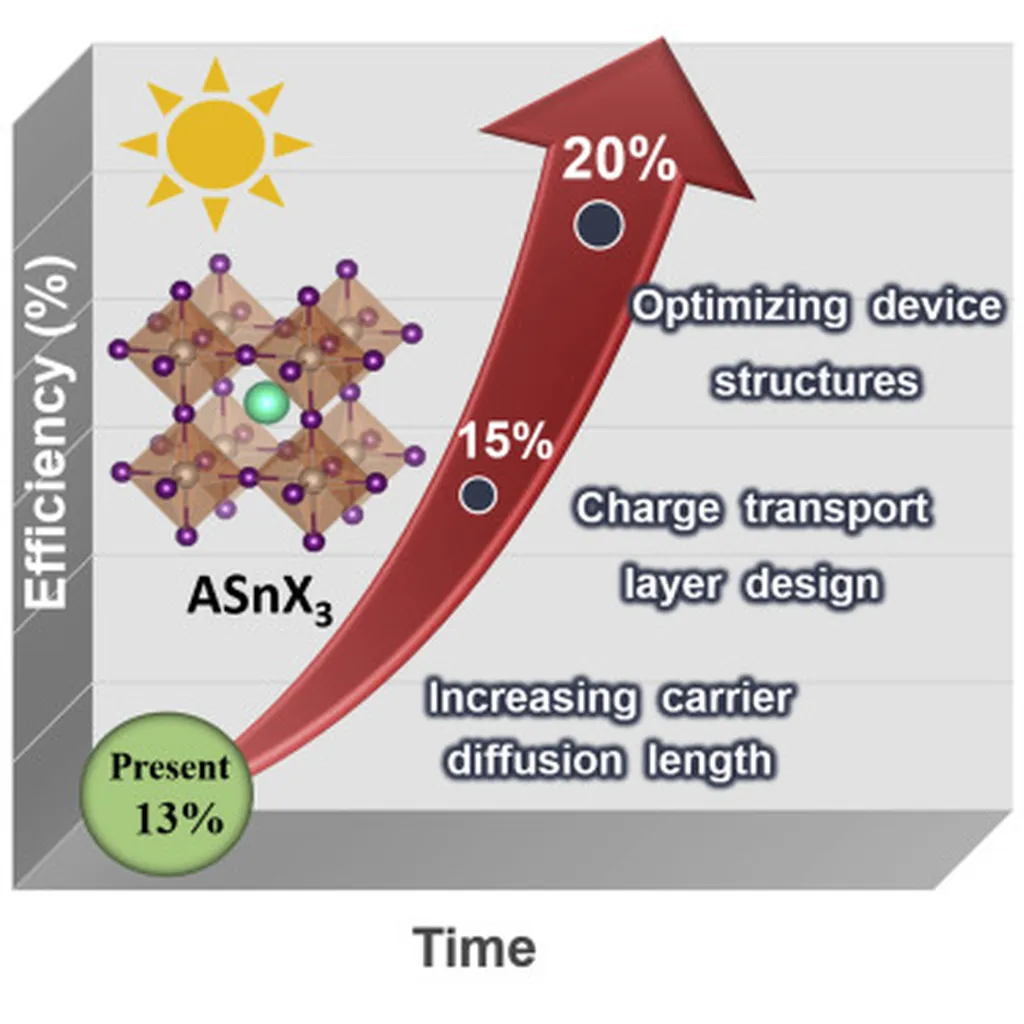In a significant stride towards sustainable energy solutions, researchers have developed a novel approach to enhance the efficiency and stability of lead-free perovskite solar cells. The study, led by SungWon Cho from the Department of Smart Cities at Chung-Ang University in Seoul, Republic of Korea, introduces a naturally derived Vitamin H (Biotin) complex to improve wide bandgap tin (Sn) perovskite solar cells (PSCs). This innovation, published in the journal InfoMat (translated to English as Information Materials), could pave the way for more efficient and environmentally friendly solar energy technologies.
The research focuses on addressing key challenges in tin-based perovskite solar cells, which have shown promise as a lead-free alternative to traditional perovskite solar cells. “The incorporation of the Biotin complex into the perovskite precursor has been a game-changer,” Cho explains. “It not only enhances the crystal growth kinetics but also passivates defects and mitigates oxidation, leading to significantly improved performance and stability.”
The Biotin complex interacts strongly with Sn2+ ions through its ureido ring, valeric acid chain, and tetrahydrothiophene functionalities. This multidentate interaction helps regulate crystal growth, resulting in compact, pinhole-free films with enhanced surface homogeneity. By passivating uncoordinated Sn sites and suppressing antisite defects, the Biotin complex reduces non-radiative recombination and ion migration, thereby boosting the overall efficiency of the solar cells.
The optimized devices achieved a record-high power conversion efficiency of 12.8% (independently certified at 12.5%) and an open-circuit voltage (Voc) of 1.03 V for wide bandgap Sn PSCs. Notably, the devices exhibited outstanding ambient stability, retaining almost 80% of their initial efficiency after 1460 hours of storage without encapsulation. “This level of stability is crucial for the commercial viability of perovskite solar cells,” Cho notes. “It brings us one step closer to realizing large-scale, lead-free solar energy solutions.”
The implications of this research are far-reaching for the energy sector. As the world shifts towards renewable energy sources, the development of efficient and stable lead-free solar cells is of paramount importance. The use of a naturally derived complex like Biotin not only enhances performance but also aligns with the growing demand for sustainable and eco-friendly technologies.
“This breakthrough could accelerate the adoption of perovskite solar cells in commercial applications,” Cho adds. “By addressing the key challenges of efficiency and stability, we are opening up new possibilities for the future of solar energy.”
As the research community continues to explore the potential of perovskite solar cells, the work of Cho and his team represents a significant milestone. The integration of natural compounds like Biotin offers a promising avenue for further advancements in the field, potentially leading to more efficient and durable solar energy solutions. With the publication of this study in InfoMat, the scientific community is one step closer to unlocking the full potential of lead-free perovskite solar cells, shaping the future of renewable energy.

